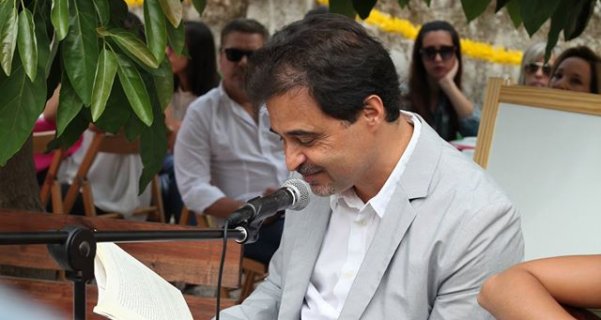In an interview, Agualusa stated that what he did was "take this phrase seriously" and "imagine an end to the world, and the possibility of its restart through the word".
"It is the word that creates reality. Whoever makes up a story, makes up a world. There is no true fiction, as all fiction imposes a reality," said the writer.
In this new title, José Eduardo Agualusa recovers his character Daniel Benchimol, who first appeared in "General Theory of Oblivion" and returned in "The Society of Involuntary Dreamers", as a narrator. This book ends with Daniel, next to his partner, Moira, settling in Ilha de Moçambique, precisely the setting of this new novel, where a meeting of writers will take place.
"In this novel, Daniel reappears on the island, with Moira nine months pregnant. I like the character, but I believe that he will not appear in any other novel. Anyone who reads the book until the end will understand why," he told Lusa.
Referring to the character and his connection with him, he declared: "Perhaps another me, in a somewhat anecdotal version".
Regarding the fact that the novel is set on the island of Mozambique, Agualusa explains that the place seemed "a perfect setting for the novel she had in mind, a story about isolation, about the end and the recreation of worlds, and, in particularly about the word as an instrument for the construction of reality ".
In the book, the author uses a certain irony in certain scenes and situations: "The whole book is a satirical fiction, as it is, for example 'The Past Seller', but I believe that there is also some poetry in it. What moves me is both revolt and poetry ".
Asked about the political situation in Angola, the country where he was born, José Eduardo Agualusa said that "Angola continues to face immense problems, but society is pacified and there is freedom of expression and thought".
"In Angola, the regime changed with the departure of José Eduardo dos Santos. Until that moment we had the continuation, in a slightly less aggressive form, of the corrupt and dictatorial regime that was installed in the country after independence. Today, we live in a different reality. "he declared.
Agualusa added that it is not only the MPLA that is trying to democratize itself, but that "also the main opposition party, UNITA, has been following this process".
"Adalberto da Costa Júnior, current leader of UNITA, seems to me to be an extraordinary man, very intelligent, very conversational, capable of creating a more dynamic and creative opposition. And this is good for the country", he stressed.
José Eduardo Agualusa was born 59 years ago, in the city of Huambo, and is the author of more than 20 titles since "A Conjura", his literary debut in 1989.
He has already received different literary awards, among them, the RTP Literature Grand Prize, for "Nação Crioula", in 1998, as well as the Grand Prize for the Short Story of the Portuguese Writers Association and the Gulbenkian Foundation Children's Literature Grand Prize.
The novel "Past seller" earned him the Independent Foreign Fiction Prize in 2004, and with "General Theory of Oblivion" he was a finalist for the Man Booker International in 2016 and won the International Dublin Literaty Award the following year.







